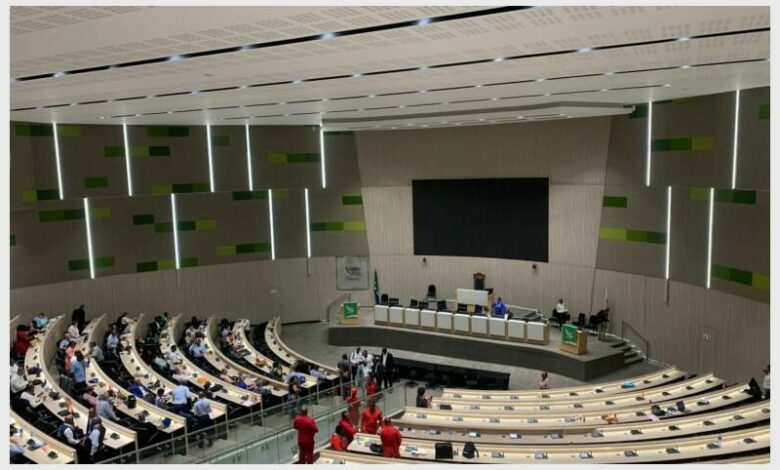News
Ward councillors owe metro over R2.5m in rates and services

More than 25 ward councillors in Tshwane are in violation of municipal regulations and code of conduct after they defaulted and now owe the municipality over R2.5 million for services rendered.
A report tabled to the Tshwane council on Friday, August 30 revealed that at the end of March, these councillors had not settled their municipal bills for over 90 days.
Councillors have failed to lead by example after breaking their civic duty and calls continue to mount for disciplinary action to be taken against the councillors for breaking the councillors’ code of conduct.
It was revealed that one councillor has an outstanding debt of over R860,000, which they have not settled for over a year.
The report revealed that the municipality has issued a final demand to 23 councillors, three councillors got their water restricted while another three got their power cut.
According to the Municipal Systems Act, 2000 Schedule 1 (12A) a councillor may not be in arrears to the municipality for rates and service charges for a period longer than three months. It must be noted that a councillor is therefore subject to the laws that govern all other public officers as the act defines the municipality as a public body.
FF Plus councillor Roché Grebe said failure to pay monthly utility bills by public representatives is unacceptable and should not be tolerated.
Grebe said councillors currently owe the metro over R2.5 million with the biggest culprits being ANC, EFF, and DA councillors.
“ANC councillors owe the metro more than R1.9 million, with the caucus leader owing R687,692.”
According to Grebe, the EFF owes R178,861, the DA R307,101, and ActionSA R17,571.
“The rest of the outstanding amount is made up by smaller parties.”
Grebe said none of the FF Plus councillors have overdue utility bills.
“The bills of 24 councillors are more than a year overdue, 30 are one year overdue, and the rest are 180 days overdue,” she said.
She said the FF Plus believes that the public representatives’ tendency not to pay their municipal bills is unethical and a violation of their responsibilities towards the metro.
“Councillors are supposed to set an example for the community to fulfill their financial obligations. Residents cannot be expected to loyally pay their utility bills, while councillors do not.”
She said the FF Plus will put pressure on the metro to hold councillors accountable for failing to fulfill their obligations.
“The party also calls on defaulting councillors to settle their debt as soon as possible to restore the public’s faith in public office-bearers.”
EFF councillor Ngoako Seanego said the EFF condemned the irresponsible behavior of councillors neglecting their duty to pay for municipal services.
“The EFF resolutely asserts that elected officials must be held to the highest standards of ethical behavior and accountability. The party is unwavering in its commitment to the communities it serves, vowing to tirelessly advocate for their interests and ensure that those entrusted with power adhere to the highest moral standards.”
Seanego expressed disappointment at the DA-led coalition for its failure to address the issue effectively and hold councillors accountable.
“It is evident that the DA is more interested in political point-scoring than ensuring that councillors fulfill their financial obligations to the city. We urge swift action to be taken in line with the code of conduct, including the deduction of arrears from councillors’ salaries where necessary.”
Finance MMC Jacqui Uys said the councillor code of conduct states that a councillor may not be in arrears with his/her municipal account.
“If a councillor is in arrears there are steps that need to be taken by the Speaker of council, who need to ultimately write to the MEC of COGTA to have the councillor removed,” Uys said.
She said the mayoral committee earlier this year adopted a Mayoral Charter to rebuild the tax administration of the city and restore financial stability. This forms part of the credit control measures that have been implemented on those who owe the city, including councillors who have had their water restricted and electricity cut.
She added that, as leaders of the city councillors should be held to a much higher standard and should be setting an example for the city and therefore the councillors’ code of conduct exists.
“Enforcing this councillor code of conduct is the responsibility of the Speaker of council and the mayoral committee took the






















